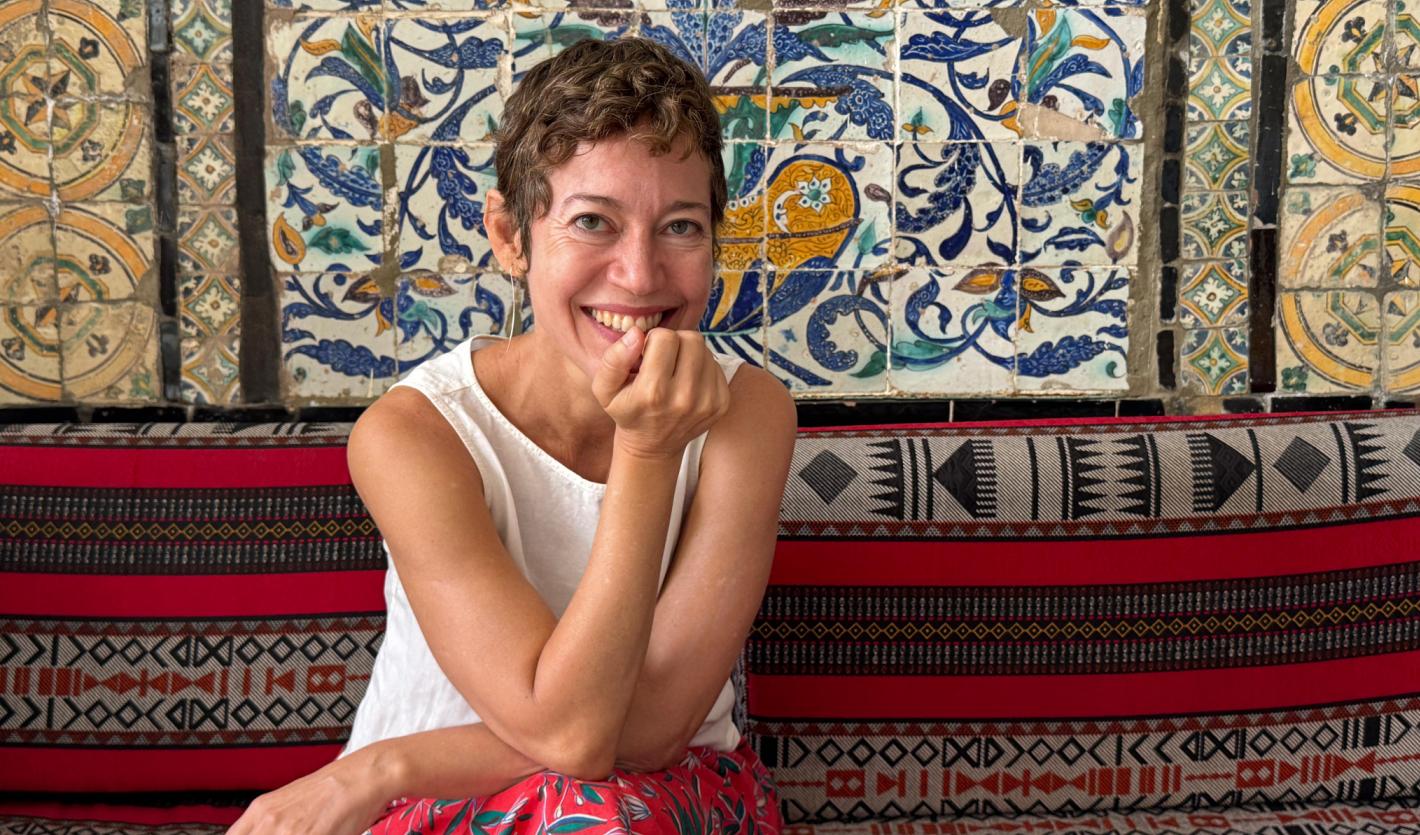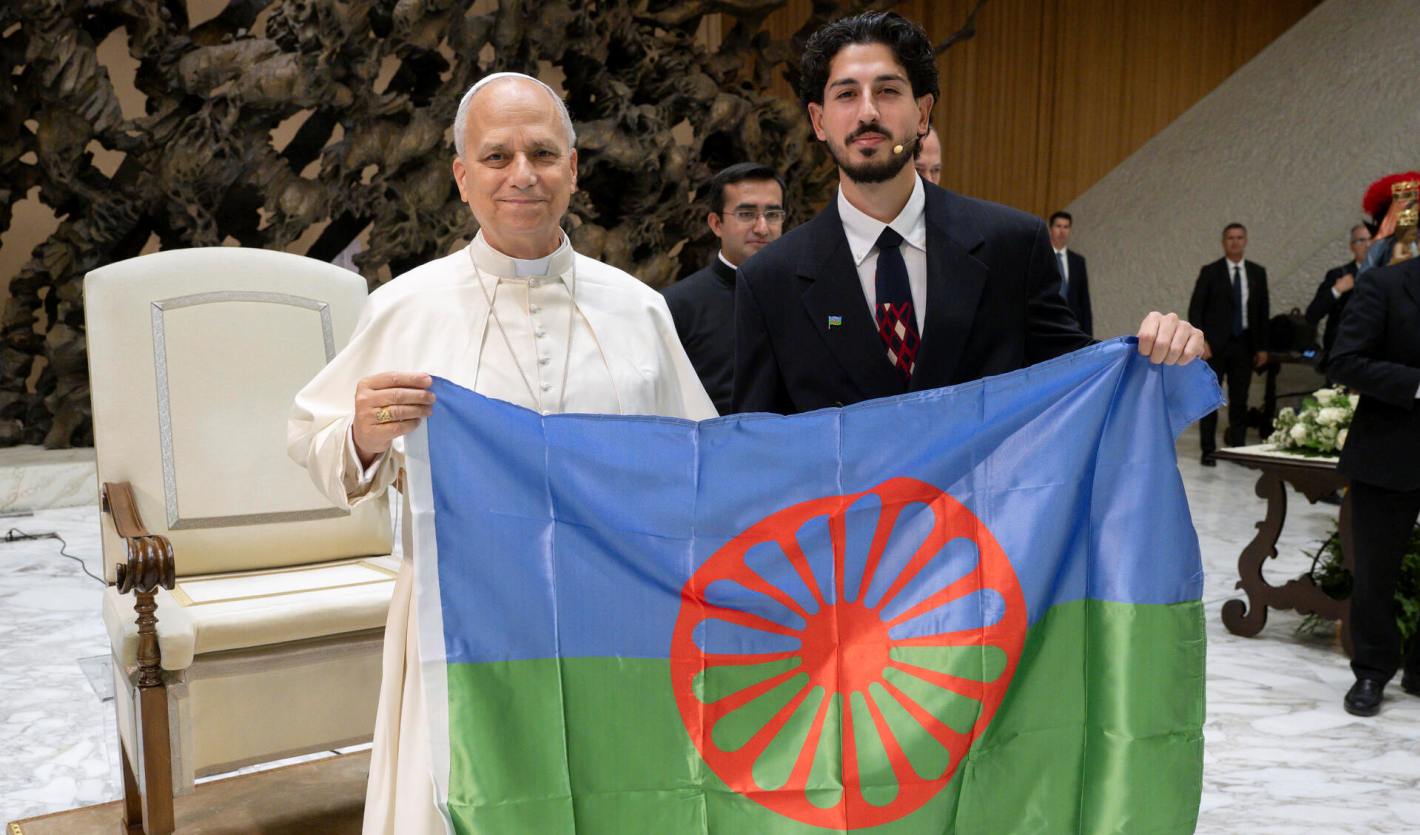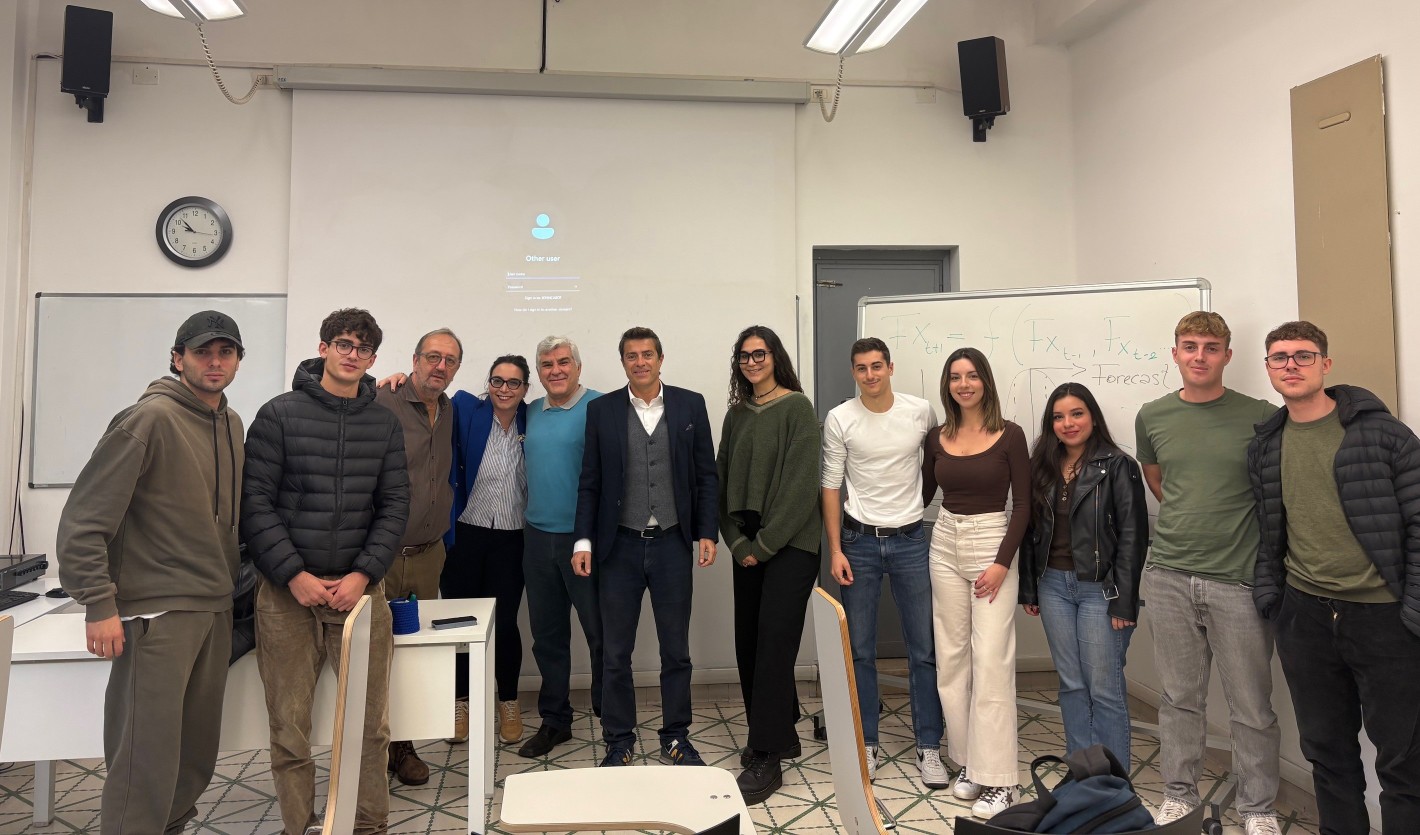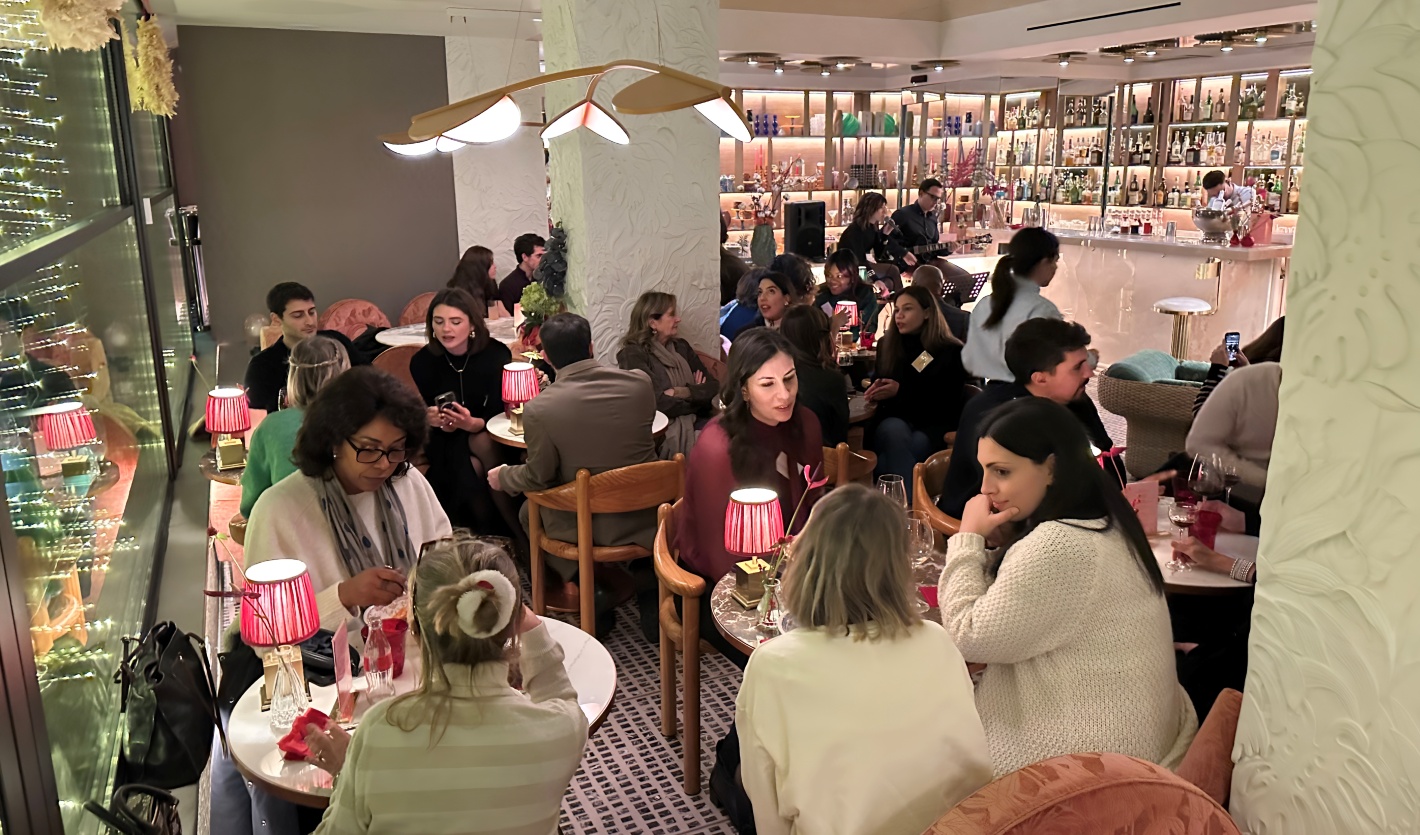An award-winning journalist and a nonfiction author and editor, Juliana Barbassa recently joined the Communication and Media Studies department. A Brazilian who has lived all over the world before coming to Rome, she now uses her extensive background in journalism to teach in the classroom at JCU. Over the course of her career, she has worked as a correspondent for the Associated Press, as a managing editor for the magazine Americas Quarterly, and later, at The New York Times, as Latin America editor and deputy editor of The Book Review.
Tell us a bit about your background.
I am Brazilian but grew up all over the place. By the time I was 10, I’d lived in four different countries. Moving around and being immersed in different cultures and different languages from early on shaped me profoundly. It led me to seek out a life where I could continue to move, to learn, to see things from different angles – in part, it was what made me a journalist. As a journalist, you always have an excuse to insert yourself into other worlds, to ask questions and – incredibly – to have them answered! It’s a way of continuing to enter new worlds, again and again.
What brought you to John Cabot University?
I had wanted to teach for a long time. JCU was attractive to me for the same reason, I suspect, that it is attractive to many of its students: it is a very international community, with students and professors from a variety of backgrounds, and at the same time it’s a small school, with small classes that allow for great discussion and engagement.
The range of writing classes JCU offers, between the English and Communications departments, also means the students get a chance to experiment with other styles, other forms. The creativity and willingness to explore that they bring to the classroom makes teaching more interesting and fun for me, too.
What is your teaching philosophy?
My approach to teaching is very hands-on. I worked as a journalist for decades, and for the last few years, I have been an editor. I approach students much as I approach the writers I work with: following them through the process of identifying a story, reporting and writing it, making sure the structure is solid, sharpening or clarifying the language.
I really believe that the only ways to improve your writing are reading and writing a lot, and of course, being willing to edit and rewrite, over and over. There is no good first draft writing, but there’s good rewriting.
For that reason, over the course of the semester, we read a lot of articles together and then take them apart, focusing on one aspect of writing and reporting or another. This way students can learn particular techniques that might be useful in their own work while thinking critically about what they are reading. And then they can apply their skills to their own writing, working and reworking their own texts.
What do you want your students to take away from your class?
Mostly, I want my classes to be useful, to leave students with skills that they can take with them. Some students may go on to be journalists; many won’t. But they will all continue to be readers and writers, whether they are writing reports, presentations at work, essays or articles. My goal is to leave them with the tools to become discerning readers and clear, compelling writers, which is helpful no matter what kind of work they end up doing.
Did you always know you wanted to be a writer?
I’ve always been a reader. Ever since I was a kid perpetually figuring out a new school, a new system, books were my happy place, a sort of portable home that would always be there for me, comfortable and quiet and welcoming. It wasn’t until I became a teenager that I found writing.
I was still moving around a lot. Both reading and writing are ways of traveling, too – outward or inward, into the world or into yourself. Both have become central to my life and my career. The rewards are endless, and I continue to experiment as a writer, to try new forms, to play with language in new ways.
Your book Dancing with the Devil in the City of God (Touchstone Books, 2015) discusses the dark realities Rio de Janeiro faces due to unfulfilled political promises and underlying social structures. Now that it has been 10 years since the book was published, do you think Rio still faces these same problems?
I wrote the book proposal at a time when Rio and Brazil were experiencing a boom. The economy was thriving, the president had overwhelming popular support, and the world was paying attention, because the country was about to host the World Cup and the Olympics.
It was a moment of such heightened expectation, of such optimism… I had returned to Brazil as a correspondent hoping to take a closer look at this moment, to see what came of it. It really felt like a moment in which significant, positive change could happen in areas like economic inequality – which had long marked Brazil – access to education and health care, and environmental pollution. There was the money, there was the political will and the incentive to do it.
But this opportunity fell apart, literally before my eyes, during those years. By the time I was writing the book, it was clear these promises would not come true. Rio and Brazil continue to struggle with many of the same issues now.
Do you find any benefits as a writer by translating other authors’ works?
I’ve started doing some literary translation in the last couple of years, and yes, absolutely, I’ve learned so much from it. To translate a literary text is an extraordinarily challenging act. To carry it over a linguistic barrier into another language that offers different possibilities, different limitations and exists within a different cultural context, all while staying true to the writer’s intent is one of the hardest and most satisfying things I’ve ever done.
It requires a sort of deep reading. You need to sink into another writer’s world in a way that nothing else demands of you, I think. Everything we write – what we write about, how we write it, and the words we choose – they all reflect who we are, and our own linguistic, cultural, social background. Setting aside my own habits,tendencies, and ideas and becoming a vehicle for another writer’s language and thought structures requires a sort of creativity and flexibility that I have found really refreshing.
It's a very physical thing. You are the body and brain that allows these two worlds to come into conversation.
Do you have any upcoming projects we should keep an eye out for in the future?
Some translation projects I have recently wrapped up include a novel called The Jaguar’s Roar, by Micheliny Verunschk (out in December by W.W. Norton) which won the Jabuti prize, Brazil’s most prestigious literary award. I’ve also translated short stories by Marina Colasanti, which will be featured in a Penguin anthology of Brazilian short stories, and by Rubem Braga and Mário de Andrade, which will be published in an anthology by New Vessel Press.












